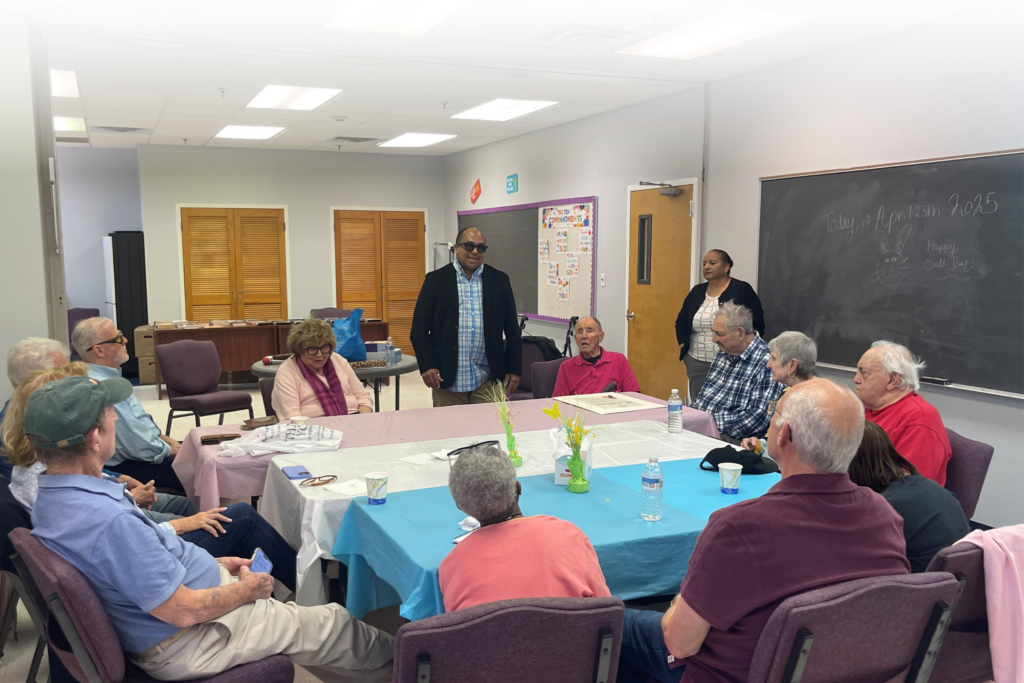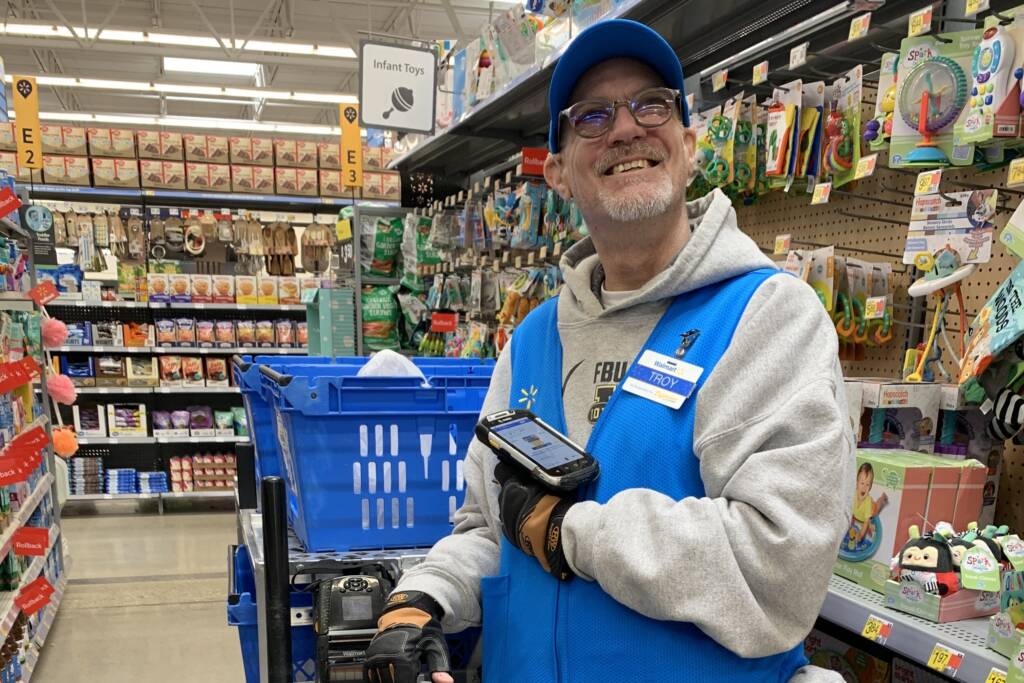Employment Services
HKNC virtual employment services address a variety of areas dedicated to preparing each person for success with a job commensurate with one’s abilities, talents, interests and aspirations.
Vocational Assessment
The virtual assessment will provide opportunities for you to identify specific goals so you may strengthen your skills and knowledge and become work-ready. The learning opportunities will guide you in building a reference point for work and will enhance your work skills and strategies for success. Strategies include learning adaptations for your determined job to optimize job performance. The assessment process outcomes are varied. You will create a work portfolio with personalized information about your work skills, strengths, accessibility needs and adaptations for the specific tasks, related experiences and work objectives.
Job Exploration
Each individual will begin identifying their interests by completing interest inventories which could include but are not limited to: verbal or pictorial editions; O*Net Interest profiles; mynextmove program, or assessments included in the virtualjobshadow program
HKNC uses the virtualjobshadow.com program which is a resource that provides opportunities for job shadowing and comprehensive career exploration.
Work Readiness
HKNC provides opportunities for you to gain work readiness skills through participation in collaborative peer learning groups. These groups offer opportunities to learn from others, to build a reference for work and enhance one’s knowledge of work skills, including soft skills and strategies for success. Topics for work readiness include strategies for accessibility and understanding the tenets of the Americans with Disabilities Act (ADA); practicing applications both paper and online; developing interviewing skills; developing a resume; self-advocacy; time management; problem-solving skills and soft skills.
Job seeking skills
You will explore the job market in relation to your identified career interests, engage in informational interviews, prepare a resume, experience mock or real-time job interviews, and gain skills to utilize a variety of strategies and resources for job seeking.
Transdisciplinary approach
Orientation and mobility skills, skills of independent living, communication skills training, adaptive technology, audiology and low vision skills are incorporated into each individualized training plan. In addition, a technology instructor will work with you to assess your adaptive technology skills to determine the optimal instruction modality to ensure that you have full access to information and instruction. Instruction may be provided by telephone, iPhone, iPad, e-mail, computer, videophone, FaceTime, Zoom meetings and Google Classroom among other virtual options.

Communications Skills Training
Learn communication methods in the work environment for face-to-face communication including communication cards, apps, text messaging and how to access group interpreting. This includes accessing ASL interpreting and captioning during group meetings and accessing group video platforms such as Zoom. Instruction on banking and budgeting, time management, college exploration, sign language and fingerspelling, and academics provide opportunities to develop and enhance communication skills for optimal participation at work, home, college and in one’s community. Distance braille classes are offered to anyone from beginners to someone who is interested in further refining skills and/or continuing to gain proficiency.
Adaptive Technology Skills Training
Adaptive Technology is the gateway to accessible, effective and efficient communication in all domains of life.
The Adaptive Technology Training includes software and hardware solutions to support you at home, in your community and in educational settings.
Training is provided on assistive technology related to screen magnifiers, screen readers, braille displays, braille note takers, OCR software/hardware, digital book services, relay services and accessible keyboards. Learn skills for using computers and portable devices such as mobile phones and tablets, and explore accessible apps that will support your independence.
Remote programs such as JAWS Tandem and TeamViewer are used to remotely access your computer for troubleshooting support if needed.
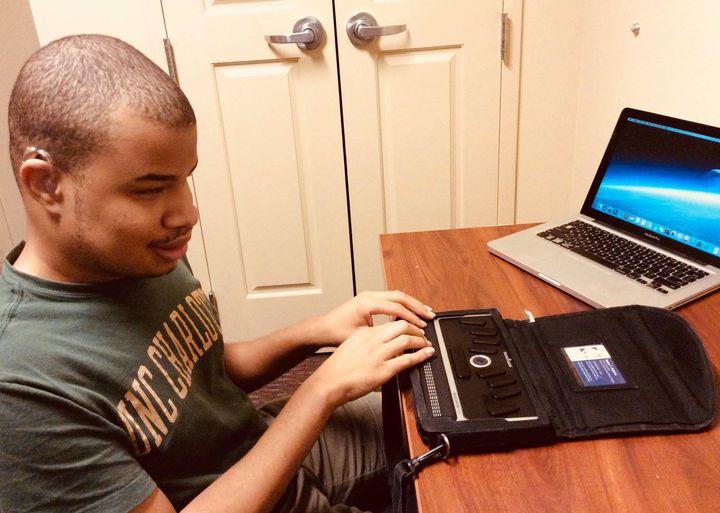

Independent Living Skills Training
The independent living remote assessment will be completed through a combination of interviews, self-reporting and video observation.
Based on your assessment, safe and individualized training and adaptive equipment recommendations will be made. Independent living training focuses on food preparation for simple and advanced meal preparation, as well as training for organization skills, labeling, wardrobe management, personal care, alerting devices and housekeeping skills to provide the foundation for success at work, school, in the community and at home.
Orientation & Mobility Skills Training
When performing a virtual orientation and mobility (O&M) assessment certified orientation and mobility specialists (COMS) will collect data in a variety of formats.
The assessment is individualized for each person and may include a video, an interview or conversation with you and, if necessary, professionals you have worked with in the past, family and friends.
The orientation and mobility services include assessment and training on orientation to indoor and outdoor environments, human guide skills, protective techniques and recovering dropped objects, cane knowledge and techniques, stair travel, indoor and outdoor travel, communication when traveling, street crossings, public transportation, night travel, preparedness for community travel and dog guides.

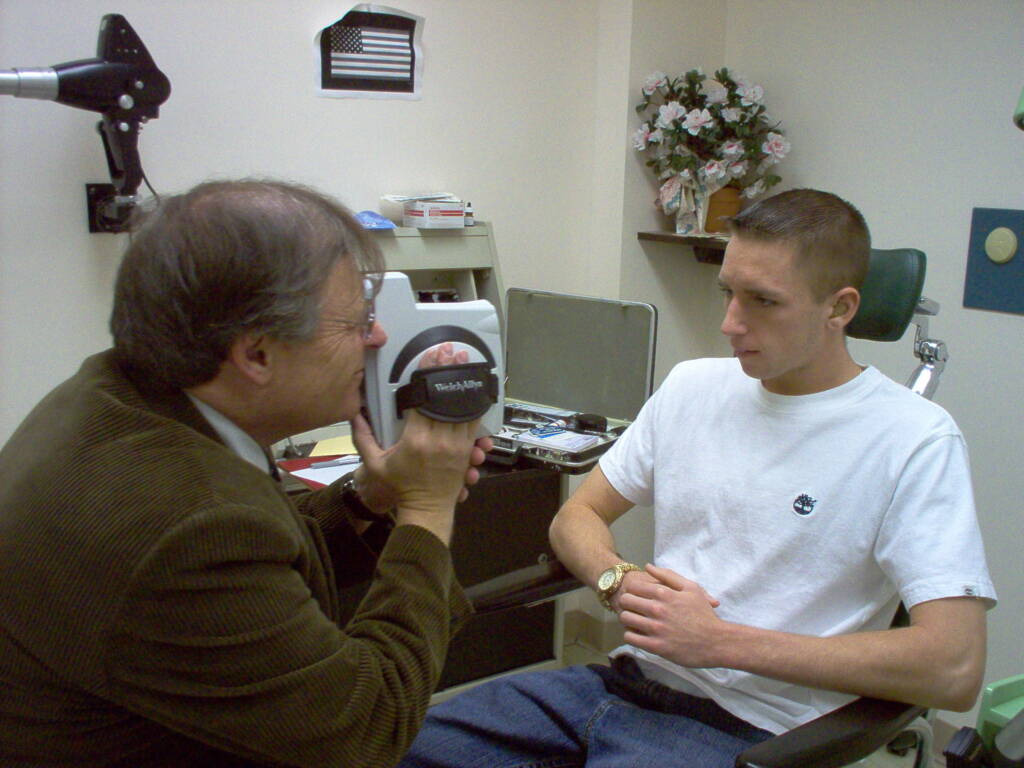
Low Vision Training
The low vision specialist works with you to learn about your current vision capabilities and functional visual difficulties using interviews and by reviewing vision reports. Assistive tools such as distance and near magnifiers, telescopes, and artificial intelligence via wearable devices may be discussed, with a focus on exploring the benefits and concerns for each low vision tool. Corresponding implications based on shared visual diagnosis will be discussed with you to bring clarity and understanding about maximizing your current functional vision.
Audiology Services
The audiologist provides information regarding hearing loss, hearing function and your options for managing your hearing loss. Whether you would do best with in-the-ear, behind-the-ear or receiver-in-the-ear hearing aids and what assistive listening devices would work with those hearing aids are some of the topics that can be covered in a virtual consultation with the HKNC audiologist. Another consideration is whether you use cochlear implants or BAHAs and still struggle with communication. Perhaps the addition of a remote microphone is needed. Is an FM system needed or will a remote microphone system be sufficient? Would Bluetooth connectivity be sufficient or would you also need direct audio input to access some of your auditory devices, such as talking book players? Knowing the options and understanding your listening needs are critical to making an informed decision. The audiologist can provide personalized consultations to assist you with navigating the options.
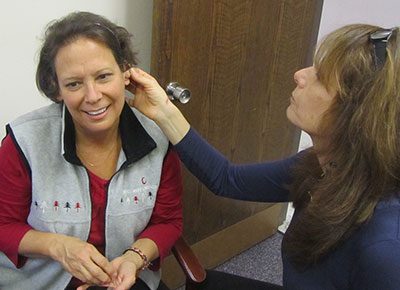
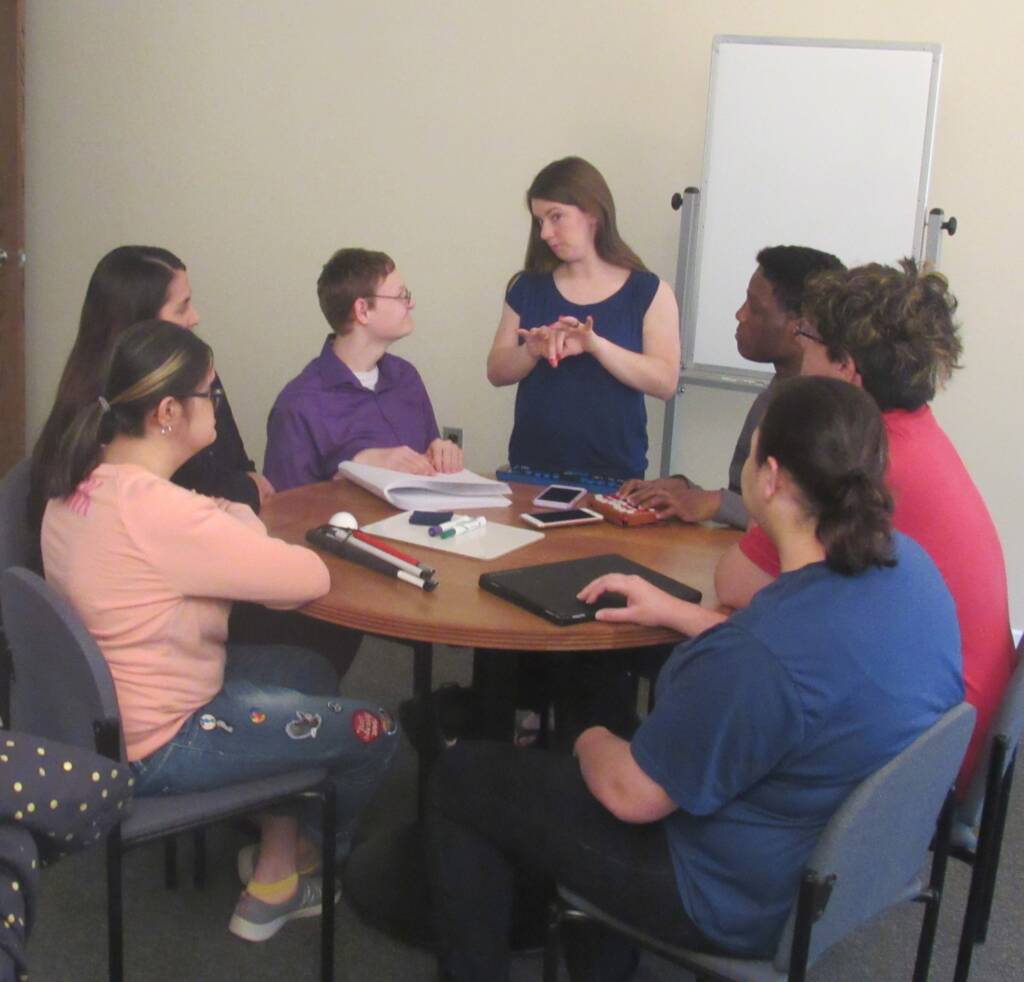
Individualized Counseling and Support Groups
At present, HKNC continues to offer mental health services remotely in the capacity of individual supportive counseling and support groups. These services are provided by a Certified Licensed Clinical Social Worker. The supports provided range from psychotherapy to confidence-building and self-advocacy. Mental health counseling plays a crucial role in a successful rehabilitation journey for people who struggle with isolation, depression, anxiety, grief and loss.
A variety of support groups are available. The groups run for approximately 8 weeks and provide a safe forum where each participant can obtain a clearer understanding of dual sensory loss and begin to explore their emotional adjustment in regards to self and the impact it has had on their family and environment. In addition, people connect with others, renew friendships and develop new ones.
Groups will continue to evolve based on the needs and feedback received from participants.
